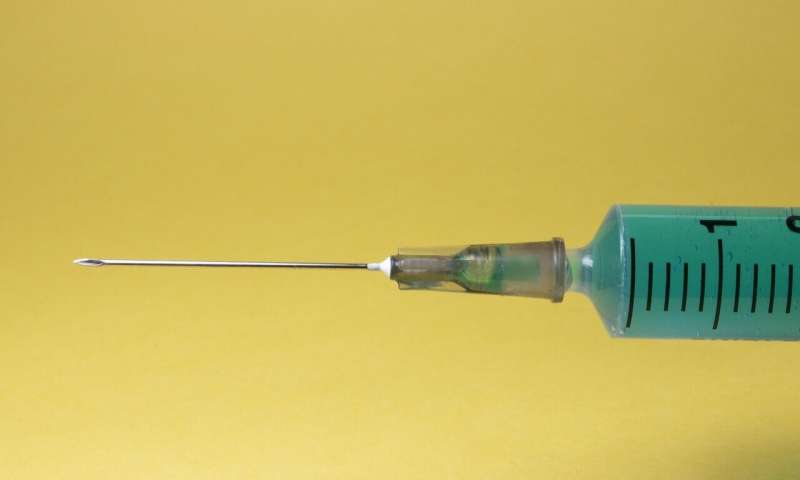
As vaccines for COVID-19 begin to be distributed across the globe this week, new research from Western University underscores the importance of vaccination against the measles virus, another pathogen that has caused numerous outbreaks in the recent past as well. Researchers have shown that the measles virus can infect and destroy innate-like T lymphocytes, potentially compromising the body’s ability to fight other infections.
Mansour Haeryfar and his team at Western’s Schulich School of Medicine & Dentistry have shown that the measles virus can kill an abundant type of white blood cells known as Mucosa-associated invariant T cells (MAIT cells), which are responsible for mounting broad defense against a range of infections.
“It was already well known that the measles virus causes immunosuppression by infecting our memory cells,” said Haeryfar. “What we found through our work is that the measles virus also infects and kills MAIT cells. These immune cells are known to participate in innate immunity, which is the body’s nonspecific defense against a wide range of bacteria, fungi and viruses.”
When a microbe infects your body, your immune system launches an attack. After you recover, specific immune cells called ‘memory cells’ are able to remember that encounter so they can launch a quicker, more deadly attack next time.
This is what is known as immunological memory. These memory cells can also be generated through vaccination.
Now, imagine an event that hits the reset button on all your past immunity by wiping out these memory cells.
Past research has shown that’s exactly what the measles virus does through a phenomenon known as ‘immune amnesia.’ Haeryfar says many deaths from measles are actually due to secondary infections because of this state of immunosuppression.
For the first time, Haeryfar and his team have shown that the measles virus also infects MAIT cells. The loss of these white blood cells likely contributes to immunosuppression caused by the measles virus and increases a person’s susceptibility to other infections. Their findings were published in in The Journal of Infectious Diseases.
“Our findings suggest that the drastic loss of MAIT cells during measles infection contributes to a person’s inability to properly control subsequent infections, revealing a new mechanism of measles-induced immunosuppression,” said Patrick Rudak, Ph.D. Candidate in Haeryfar’s lab at Schulich Medicine & Dentistry and first author on the study. “To our knowledge, our study is the first to demonstrate that MAIT cells can be killed by direct infection with a virus, uncovering a previously undescribed aspect of MAIT cell biology.”
The team demonstrated that MAIT cells were noticeably more susceptible to a measles infection than conventional memory cells.
Using this work as a jumping-off point, Haeryfar has put forward a theory, published today in the journal PLOS Pathogens, which he calls ‘Innate Immune Amnesia’. This theory explains how a shortage of MAIT cells may make measles patients so susceptible to unrelated infections.
“MAIT cells may be considered the missing link for measles immunosuppression at the interface between the innate and adaptive arms of immunity,” he writes in the theoretical paper.
As the COVID-19 pandemic continues across the globe, never before has an entire population been so focused on how viruses infect our body and our immune response. In the wake of the pandemic, the researchers say this work provides yet another strong case for the importance of vaccination against viral diseases like the measles.
“Through the measles vaccination, you not only protect yourself and your community against this virus but also ensure continued immunity to a wide range of other microbes,” said Haeryfar.
Crystal MacKay, University of Western Ontario

